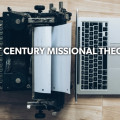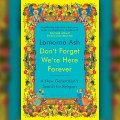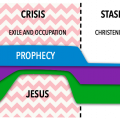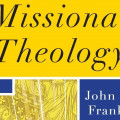Posts about “missional church”
I’ve made this list available because I’ve been doing quite a bit of work on “missional church” recently with Communitas and King’s School of Theology here in the UK. The basic thesis that I want to develop and test is that a narrative-historical reading of the Bible also helps us to frame the task of the church in the West after Christendom.
What is “missional church”? For my purposes it is the “indigenous” Western church, the direct heir to Christendom, the remnant of the Christendom church, in crisis mode, as it self-consciously and deliberately gets to grips with the task of recovery, renewal, and reorientation in the face of the rise of secular-humanism and the dawn of the Anthropocene.
I did something like this a few years back—now updated (what are we to make of the Quiet Revival, etc.?) and better focused. It will be a six week series of online sessions on what I would basically describe here as a narrative-historical missional theology. In other words, how does the church in… ( | 0 comments)
We are probably stuck with the distinction between “church” and “mission.” I attend a church in Westbourne Grove. I work informally with a mission organisation. But in biblical terms there is something odd about our obsession with mission. The word occurs only four times in the… ( | 1 comment)
At the Communitas staff conference in Malaga last week, there was a lot of discussion around two related topics: human sexuality and the surprising interest shown by young people in Christianity in the last few years, which sometimes goes under the label “quiet revival.”On the flight back, I… ( | 0 comments)
This is a half-baked response to someone who got in touch with some questions after reading Why the missional church must also be prophetic:One thing I’ve noticed, not only in your writing but across much of the missional literature I read, is that the insights can often feel quite abstract or… ( | 0 comments)
I ended my last post agreeing in principle with Ian Paul that preachers need to take the historical dynamics of the biblical narrative seriously, but disagreeing over the scope of that contention. It is not history only insofar as it sets up the conditions for the existence and mission of the… ( | 7 comments)
From my limited perspective (other limited perspectives are available), it appears that the church in the West is changing or being changed quite dramatically. It is adapting to a marginalised and diminished presence by re-imagining the manner of its engagement with the world around it. We are… ( | 1 comment)
The Bible tells the story of the building and rebuilding of the people of God. I think that the church today is having to rebuild again, and I have been looking for a simple image or metaphor that captures the process and the basic components. This tower of five wooden blocks is about as simple as… ( | 0 comments)
I follow the output of the Gospel Coalition site on the look out for material that I can use to illustrate the differences between, in this case, conservative theological readings of the New Testament and a narrative-historical reading. I do the same, naturally, for liberal-progressive thinkers,… ( | 1 comment)
I have two preliminary points to make from a biblical perspective.
First, the story of Jesus and the early church as told in the New Testament is not a departure from the story of Israel. On the contrary, we must insist that it is much closer in presuppositions, outlook, and expectations to Old… ( | 1 comment)
In the six week course I have been doing on “missional church” for King’s School of Theology I have made quite extensive use of the story of Paul’s visit to Athens in Acts 17:16-34 to underline the point that mission in the New Testament is not about the salvation of individuals, it is a call to… ( | 2 comments)
I have been having an online conversation with someone who is rather suspicious of the charts I have been using (such as the one below) to map the story of the people of God throughout the ages. One of the problems is that I have not defined the y-axis. My assumption was that the chart rather… ( | 0 comments)
Frankly, it is an absurdity that we still have such a hard time making sense of Jesus’ core proclamation about the kingdom of God. The problem comes up again in another book by Alan Roxburgh on “missional church,” this time co-written with Scott Boren: Introducing the Missional Church: What It… ( | 2 comments)
In their book Practices for the Refounding of God’s People: The Missional Challenge of the West (2018), Alan Roxburgh and Martin Robinson first offer a rather pessimistic analysis of the consequences of modernity’s “wager” (the metaphor is Adam Seligman’s) in letting go of its Christian… ( | 14 comments)
My recently developed narrative missiological model has three main parts to it. During periods of stasis the people of God is 1) new creation and 2) royal priesthood. During periods of crisis those functions tend to be reduced, and 3) a prophetic identity comes to the fore. We are currently in a… ( | 2 comments)
Not to put too fine a point on it, the church in the West is facing an existential crisis. Most of the remedial effort has gone into doing things differently—trying new approaches, developing ways of operating that restore confidence, find favour, get attention, etc. Much good theological… ( | 6 comments)
The Hebrew word shalom features prominently in “missional church” discourse. John Franke says, for example, in his Missional Theology: An Introduction: “The restoration of peace or shalom, the all-embracing blessing of the God of Israel and Jesus Christ, may be the simplest, most… ( | 0 comments)
The books I’ve been reading on “missional church” have a couple of key objectives in common: to describe the progress of the Western church towards a new “missional” paradigm, and to map that paradigm on to an expansive reading of the biblical narrative. It’s an obvious, perhaps inevitable,… ( | 6 comments)
A significant tranche of missional church thinking centres on the APEST paradigm. The argument is that if the church is to become a movement again after the sclerotic institutionalism of the Christendom era, it needs urgently to reactivate the gifts of apostle, prophet, and evangelist. Shepherds… ( | 2 comments)
It is clear from reading recent books on missional church that a missional theology needs to extend in two directions. It needs to extend in a social direction to encompass the existence of churches as communities interacting with societies; and it needs to give an account of the… ( | 0 comments)
If you’re looking for a primer on missional theology, John Franke’s Missional Theology: An Introduction is not a bad option. It’s clearly presented and to the point, with just five chapters on “Missional God,” “Missional Church,” “Missional Theology,” “Missional Multiplicity,” and “… ( | 0 comments)


















Recent comments